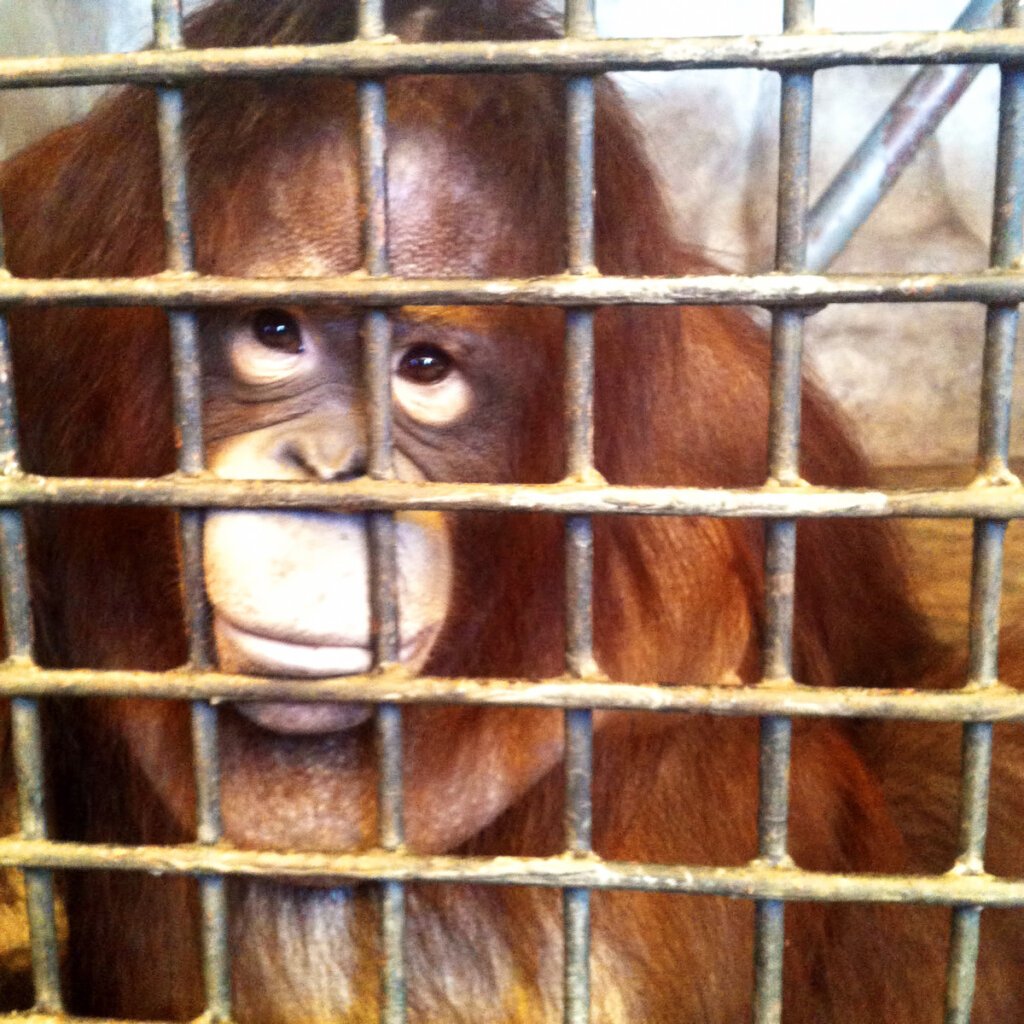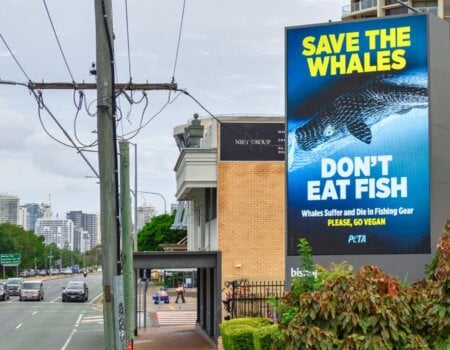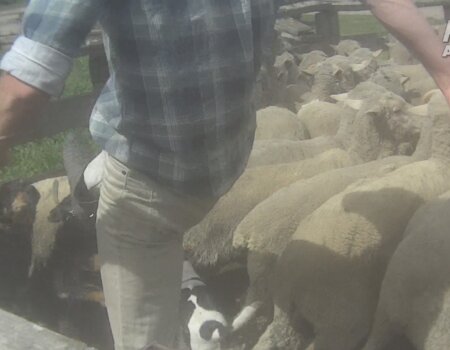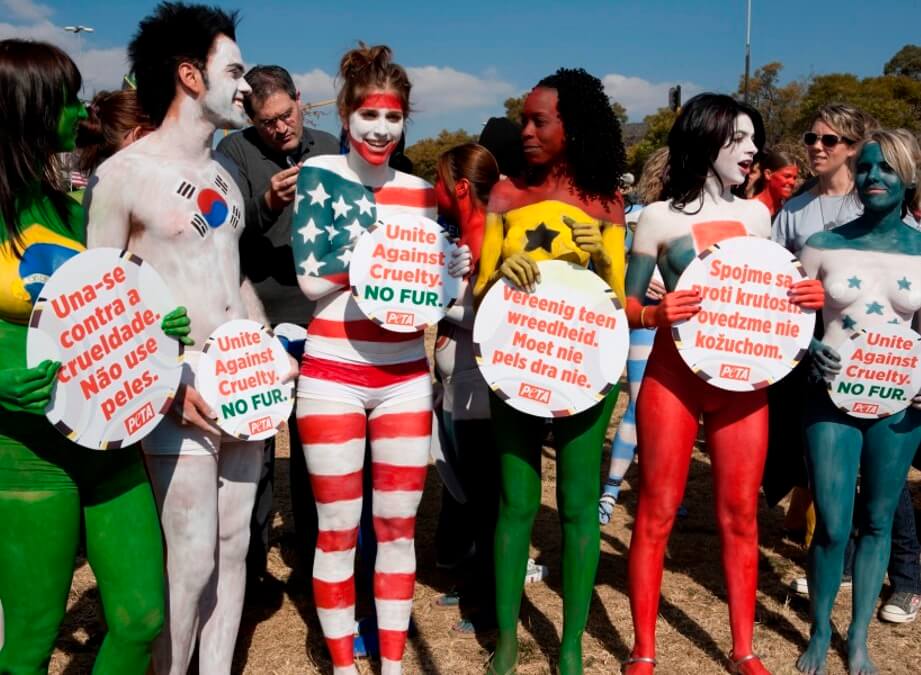
More Than a Piece of Meat: Why I’m a Feminist & An Animal Rights Activist
I’ve posed as a piece of meat, wearing nothing but underwear and bodypaint while lying on a barbecue outside Melbourne’s Queen Victoria Market.
I’ve walked around naked in Hong Kong – and once, in Bangalore, I just wore lettuce leaves. I’ve made headlines for stripping in public dozens of times over the past 10 years, so it might surprise you to hear that I consider myself a feminist.
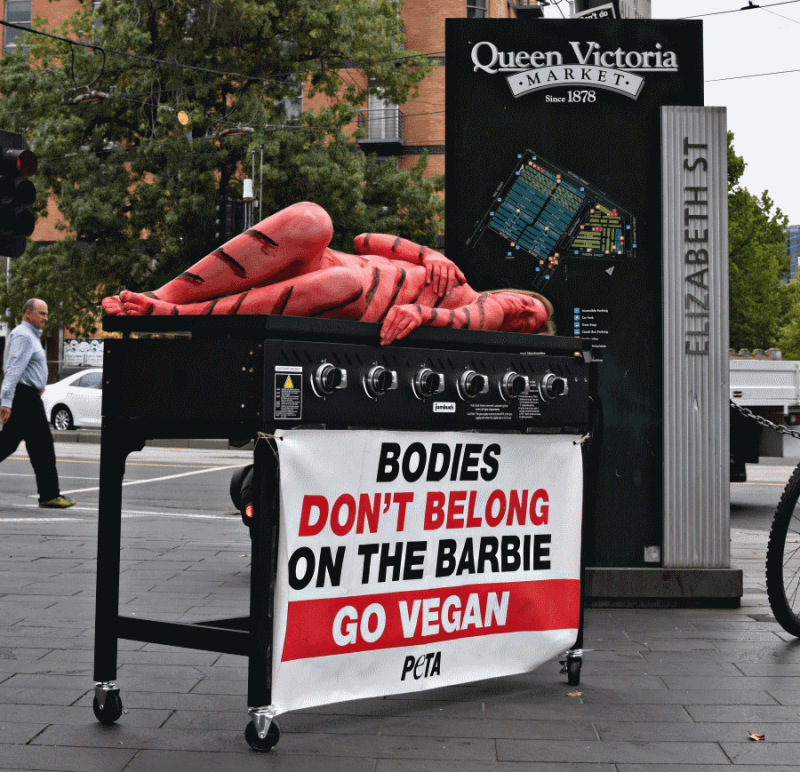
Emma Watson recently said it best herself, after being attacked for daring to bare a bit of flesh in Vanity Fair:
“Feminism is about giving women choice. Feminism is not a stick with which to beat other women with. It’s about freedom, it’s about liberation, it’s about equality.”
A big part of feminism, to me, is the freedom of women – and men – to use their bodies in whichever way they choose, without being subject to judgement or shaming. The nudity itself is actually quite liberating, but the fact that I am using my body as a political tool is most empowering. The show I put on is more than skin deep – I’m doing it for animals.
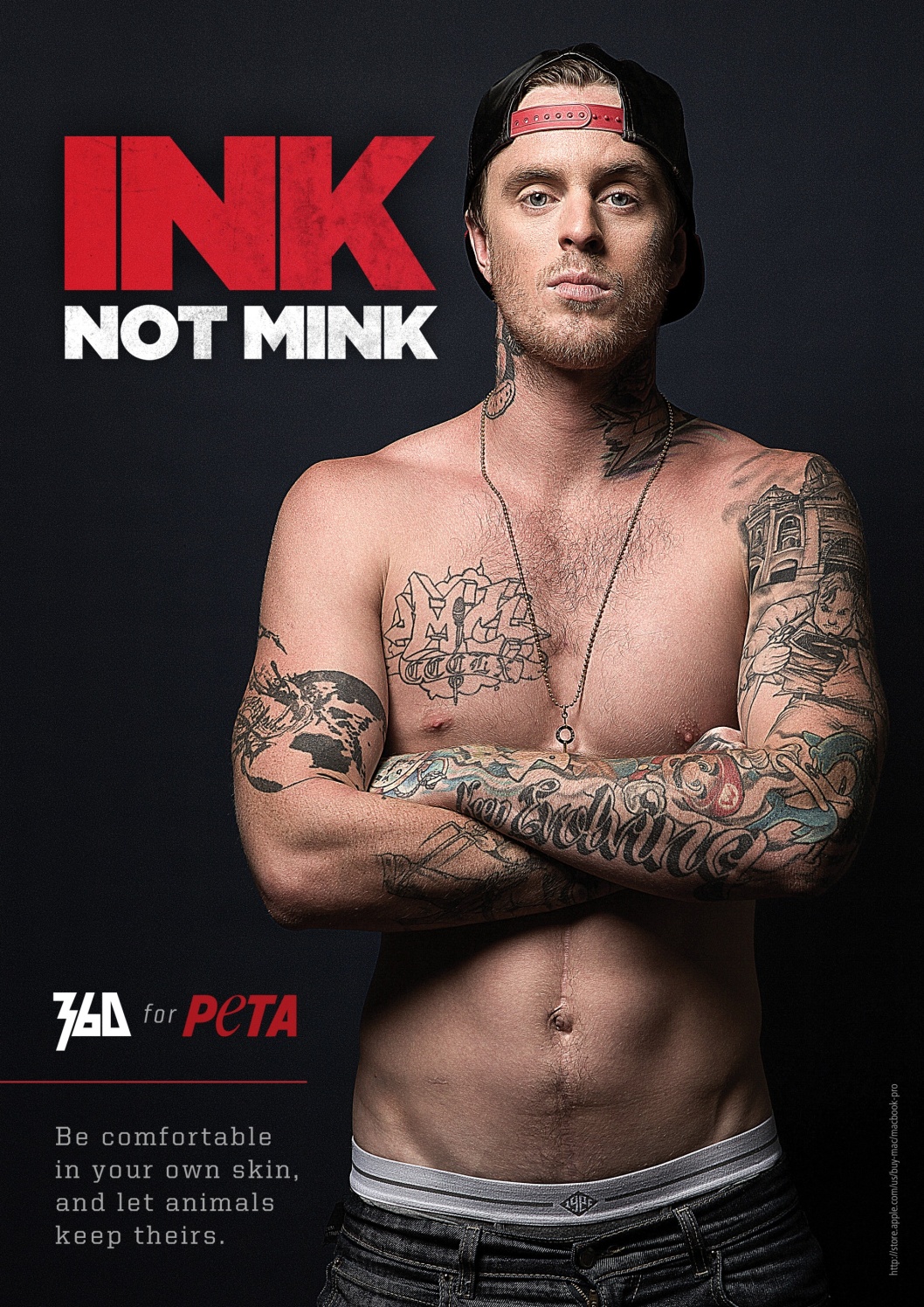
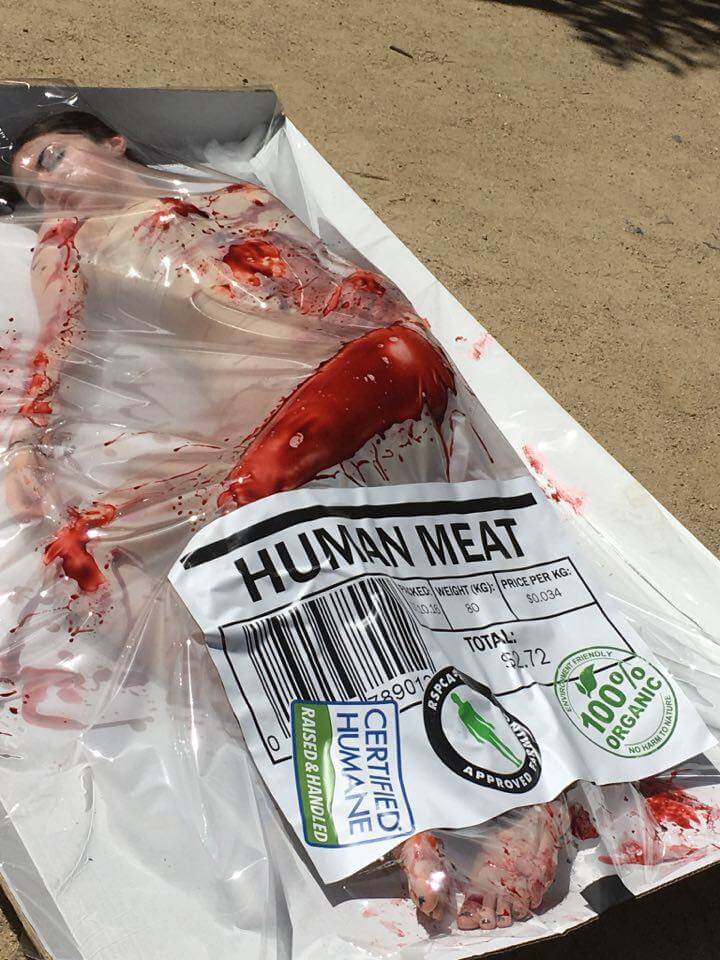
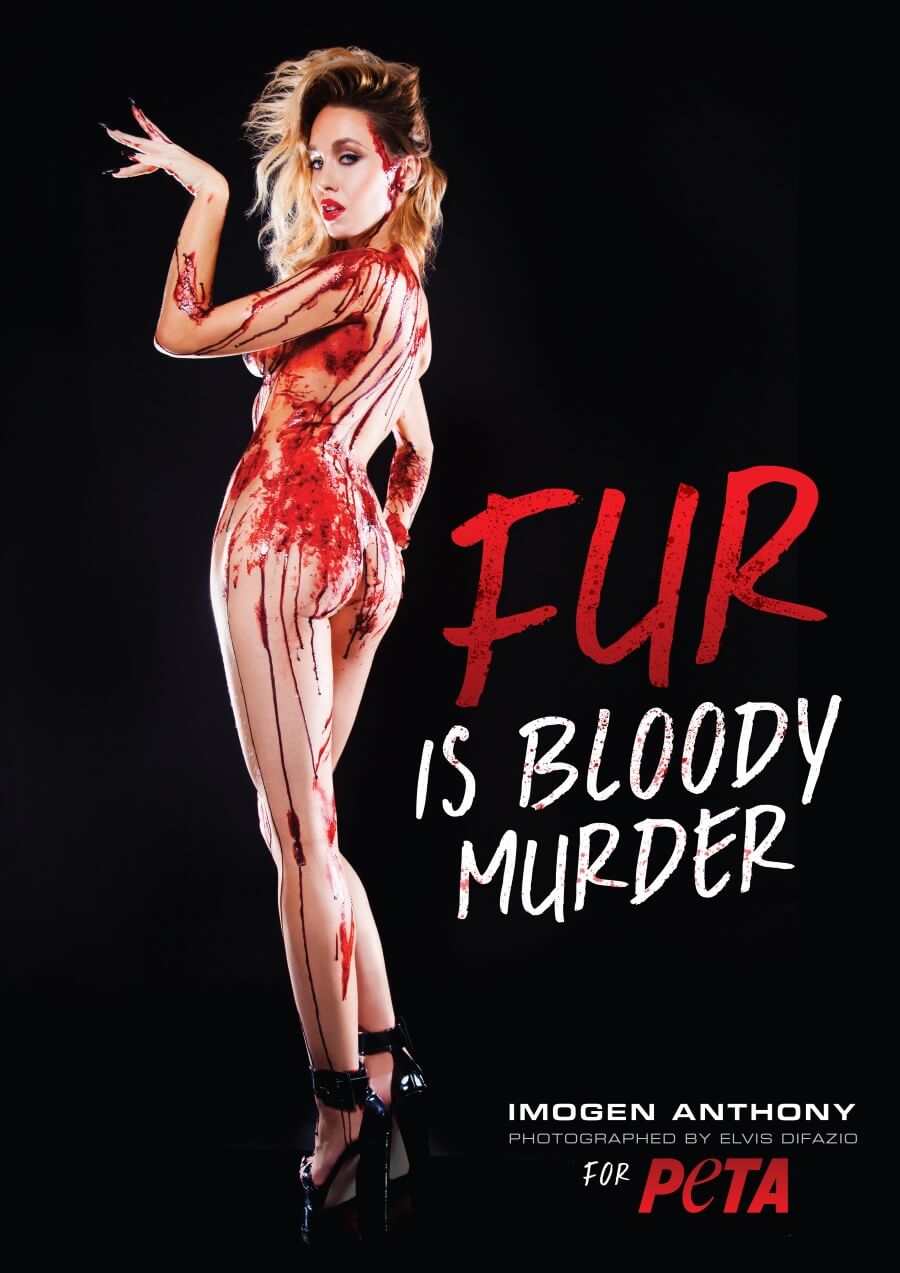
Unlike me, most animals on Australian farms do not get to choose how they spend their days or even what happens to their bodies. They are crammed by the thousands into filthy, windowless sheds, wire cages, or crates; are mutilated without painkillers; and are ultimately shoved onto trucks or ships for a long and punishing journey to their death. We slaughter them one in front of the other and ignore their suffering just to turn a profit.
We also exploit their reproductive systems to make more money.
We’ve selectively bred chickens on factory farms so that they produce one egg each day, but in the past, chickens laid between 10 and 20 eggs per year. This increased output places an unnatural burden on their bodies and is comparable to what a woman would experience if she had her period every day of her adult life.
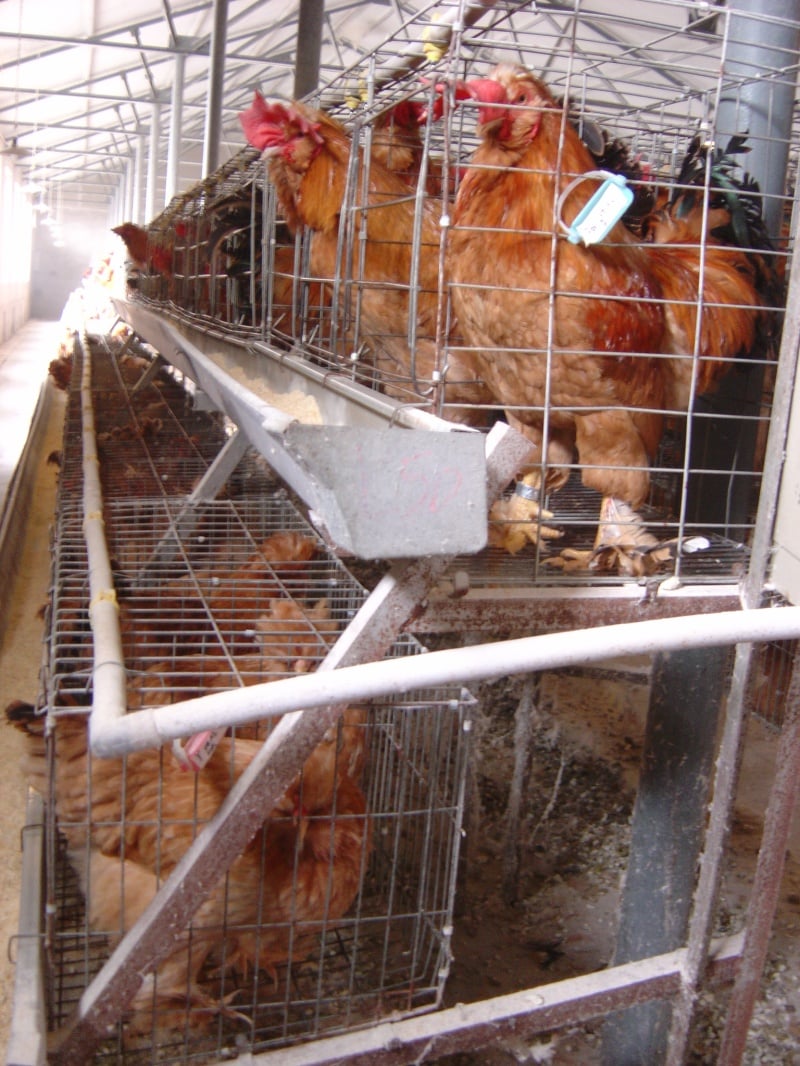
Meanwhile, cows on dairy farms are forcibly impregnated yearly. The industry’s own terminology gives the game away: the apparatus in which they are restrained during insemination is commonly known as a “rape rack”. Shortly after birth, their calves are torn away from them so that the milk that was intended for them can be sold to humans. The cows bellow in grief and often chase the trucks that carry their babies away.
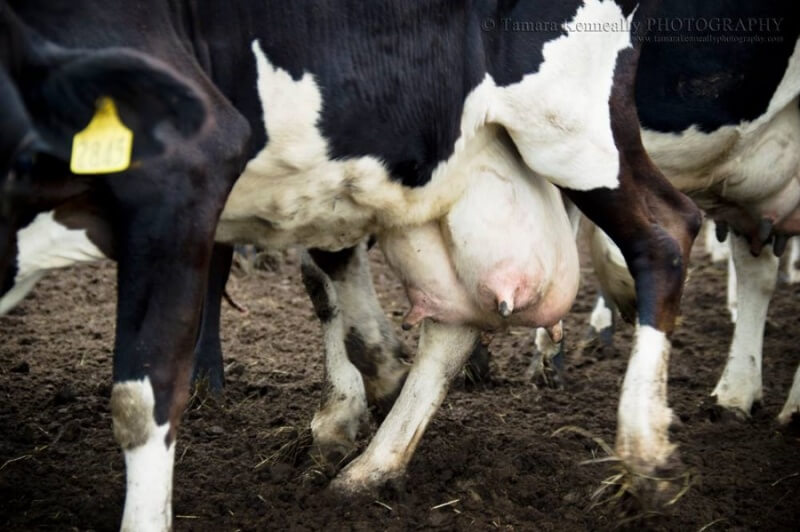
Discrimination is discrimination whether towards a woman, a cow, a pig, a sheep, or a chicken. “They are different from us” is the belief on which all prejudice is based.
That’s why, as a feminist, I am compelled to protect the rights of animals, too. It is never OK for us to use our differences as an excuse for domination and exploitation.
But let’s be realistic: in a world obsessed with reality TV and celebrity selfies, few people think much about animals beyond sharing a cute cat meme, let alone stopping to consider how we exploit them. PETA’s goal is to draw attention to these issues – and I don’t have to tell you that sex sells, right?
From personal experience, I can say with certainty that there’s an inverse relationship between the number of items of clothing I have on during a demonstration and the amount of news coverage it garners. We may not have the big advertising and production budgets of some of our adversaries, but if we are clever and a bit cheeky, we can get a message out to the masses. If people respond to our ads or protests in any way – especially if they are offended or angry – they are engaged and thinking about the issue. Animal rights is not a popularity contest.
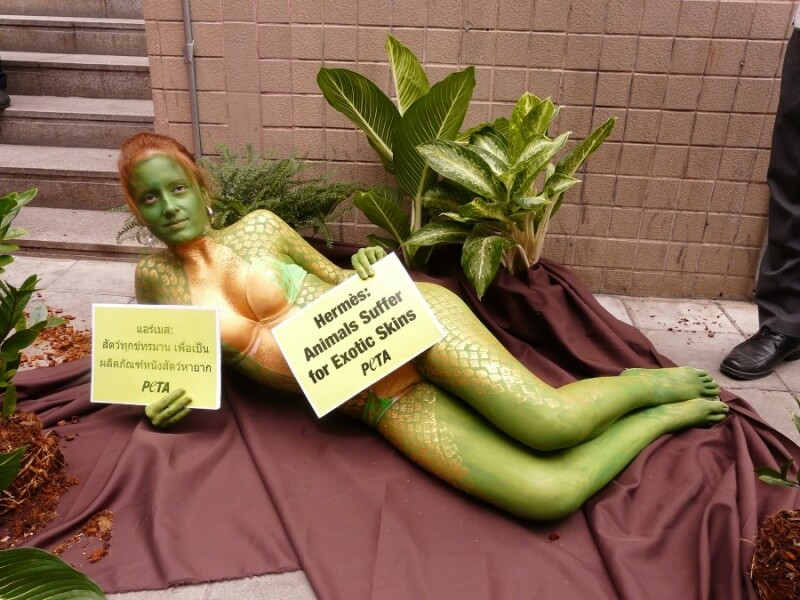
Like all the activists and celebrities who go “naked” for PETA, I volunteer to do so because I believe in the cause and want to take action to help animals. Other PETA members advocate for compassion by handing out leaflets, sharing videos on social media, signing petitions, and, most importantly, keeping animal-derived foods off their plates. Every time we buy meat, dairy products, or eggs, we support the idea that certain groups should be allowed to own and exploit others.
This International Women’s Day, if you consider yourself a feminist or even just someone who rejects oppression, order a free vegetarian/vegan starter kit right now.
Ashley Fruno is the associate director of campaigns for PETA Australia. For more information on PETA’s work for animals in Australia and ways to get involved, please sign up to PETA Australia’s Activist Network.
Help Animals in 2025: Renew Your PETA Membership!
